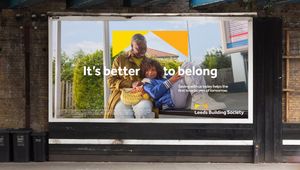
Is Charlotte Tilbury’s Latest Campaign Really Driving the Progress We Want to See?

The Formula 1 season is Go Go Go. You may be a fan and already resigned to watching Max Verstappen lapping the rest for 24 races straight. You may be bingeing the marketing miracle that is Drive to Survive. You may have just read the texts.
Or, if beauty is more your thing, you may have spotted Charlotte Tilbury’s recent tie-up with the sport.
I’ve been lucky enough to work with beauty brands for the majority of my career. And Charlotte Tilbury has always been a fascinating case study – or, should I say, counter-case study – for our industry.
Perhaps more than any other sector, beauty brands have a deep obsession with purpose. That’s often to wriggle away from a lot of beauty’s ugly truths – by nature it can be oppressive, it enforces gender roles.
So you get brands like Dove campaigning against toxic beauty standards. You get Avon helping women build businesses and empower communities.
And they’ve been incredibly successful in doing so. I hate to use industry awards as a barometer for this, but name me any year from the past dozen and I’ll show you a stack of Cannes Lions won by a variant of Dove’s ‘Real Beauty’ campaign.
But Charlotte Tilbury has rarely ever dipped its toe in the Purpose Pool. Indeed, it’s almost actively shunned it.
Here is a brand that doesn’t shy away from the airbrushed ad. Whose founder has proudly stated that she wears mascara and eyeliner to bed to ‘keep the magic alive’ with her husband. The marketing is hyper-glam and a real throwback to old-fashioned ideas of what beauty looks like.
So forgive me if I’m a little uncomfortable with the messaging behind Charlotte Tilbury’s F1 partnership. The idea that it’s empowering women by driving representation in the sport, smashing the glass ceiling that exists in an ultra-male-dominated world and by doing so instilling a new sense of confidence and self-belief for girls that dare to dream.
First, I’m not sure whether a brand whose founder won’t let her husband see her without make-up is in the best position to talk about confidence and self-belief.
But it’s also hard to imagine from a beauty industry perspective why a brand would want to partner with a sport that’s as unfit for the future as Formula 1.
We already know that the climate crisis disproportionately affects women and girls more than it does men. We see multiple accusations aimed at the beauty industry around sustainability. So if you’re looking to move away from these messages, a sport that has actively seen a rival launch to counter its climate issues is perhaps not the most ideal association.
Which brings me to ask, is beauty’s obsession with purpose unfounded? Charlotte Tilbury has built a billion-dollar business based on glitz and glamour. And it’s claiming a partnership with a sport that’s willingly shipping fast cars between Bahrain and Saudi Arabia this week as a victory for women everywhere.
What’s more, the press seem to be lapping it up. Sentiment seems to be mostly positive. A feminist narrative is definitely being upheld. One Harper’s Bazaar piece came out fighting to accuse anyone who dared criticise the partnership as ‘misogynistic’.
Maybe then, the world does want glitz and glamour and unbridled indulgence after all. But I’m not sure how comfortable I am with that.















